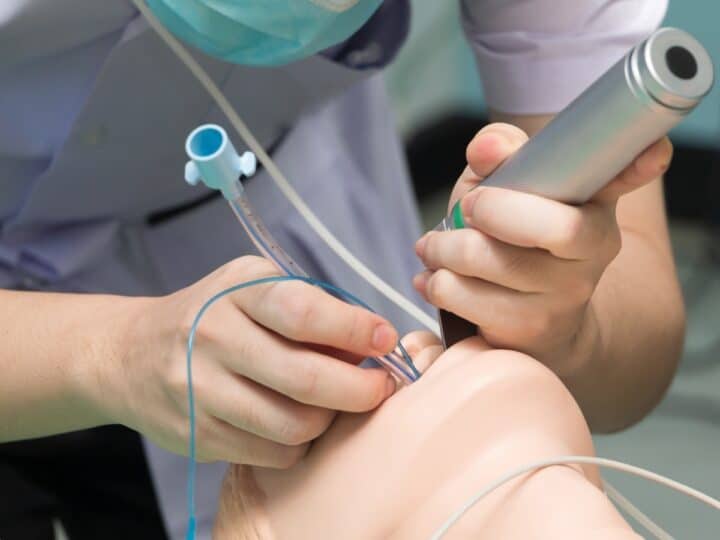It is widely known that Covid-19 most cruelly afflicts people who are already in poor health. Along with advanced age, a higher risk of severe illness and death is associated with obesity, diabetes, high blood pressure and heart disease.
What is less commonly noted is that most of these conditions are “diet-related diseases,” which are largely caused by — and can be cured by — what we eat.
In other words, nutrition is the biggest coronavirus risk factor that nobody is talking about.
Over the years, I’ve helped hundreds of patients with diet-related diseases lose weight and drop their medications, primarily through diet and lifestyle adjustments. I never expected my medical expertise to have any relevance in a viral pandemic.
But I’ve come to believe that proper nutrition may be the best way we have of readying our bodies to fight off the coronavirus. The overlap between poor metabolic health and vulnerability to Covid-19 has become impossible to ignore.

Why is metabolic dysfunction so uniquely damaging to people infected with the coronavirus?
Researchers are still racing to identify all the different mechanisms at play. We know that insulin resistance and obesity wreak general havoc with the immune system. Affected individuals get sick more frequently, and when they do get sick, it’s more debilitating.
Fat cells spill into the bloodstream and accumulate in the tissues of the immune system, disrupting the activity of leukocytes, lymphocytes and T-cells. Abnormal hormonal function leads to chronic inflammation, which may be particularly dangerous when Covid-19 provokes a hyperinflammatory response.
All these changes not only have a negative impact on immune response but also, chillingly, on the efficacy of many vaccines.
Beware sugar, carbs, seed oils
These dysfunctions can be changed with remarkable speed.
One of the most important but little-known medical breakthroughs of the last several decades was the discovery of the hidden connections between most metabolic diseases.
Few of my patients, before I saw them, had ever been told that symptoms such as excess abdominal fat, high cholesterol and hyperglycemia were all profoundly related. In fact, they can all have the same causes, mechanisms and pathways, and it’s difficult to tell where one of these conditions ends and another begins.
In recognition of these connections, doctors on the vanguard will diagnose patients who exhibit three or more signs of significant metabolic dysfunction with “metabolic syndrome.”
The fact that all these conditions are related is great news for most patients: it means we can treat them all with a single strategy.
Diet-related diseases require diet-related solutions, and metabolic disease is caused primarily by an excess of sugar, dietary carbohydrates, and seed oils.
Carbs — especially those found in sugars and highly refined grains — prompt huge spikes of the hormone insulin, the first step in a vicious cycle that leads to insulin resistance and other hormonal imbalances and derangements. Seed oils (often referred to as vegetable oils) like canola and corn oil increase insulin resistance.
Israeli diet: healthy or not?
Many books and articles have celebrated the Israeli diet as one of the world’s healthiest. True, Israel is metabolically healthier than many Western nations, but that isn’t saying much.
Nearly half of Israel’s adults are overweight, at least one-third have hypertension, and nearly one-third of those between the ages of 65 and 84 have diabetes. An unacceptably large percentage of our population is at an especially high risk of death from Covid-19 due to diet-related illnesses.
The local emphasis on fresh vegetables, lean protein and olive oil is a wonderful and very nutritious thing, but Israel is still very much at the mercy of the global trends that are driving the twin pandemics of diabetes and obesity.
Fast food and American cuisine are on the rise here as elsewhere. We eat too much nutrient-free junk food, food that’s processed and full of sugar and seed oils. We drink too much soda and fruit juice. (Juice is pure sugar, even if it’s natural!) Every Israeli, no matter the age or health condition, should be reducing consumption of these metabolically destructive foods.
Go keto
For adults who already have known metabolic risk factors, even certain elements of the otherwise healthy traditional Israeli diet may be worth reviewing.
Think of all that pita bread, and all those dates—what are they but highly concentrated blasts of carbohydrate?
To my own patients, I recommend a more extreme change: a very low carbohydrate (or “ketogenic”) diet. Very little fruit, no rice, no hummus.
Avoiding carbs almost entirely is the one surefire way to quickly break the vicious cycle of insulin spikes and insulin resistance.
My patients enjoy vegetables, chicken, fish, eggs, meat, olive oil and dairy in abundance, they lose weight, and their metabolic health recovers with extraordinary speed.
I’m not the only doctor to see these results. A 2019 experiment, to give one example, showed that in just four weeks the majority of participants on a low-carb diet reversed their metabolic syndrome. Imagine: four weeks to undo a lifetime of damage!
Now, as the coronavirus sweeps across our communities, diet may be a more important intervention than ever.
Dr. Mariela Glandt, trained at Harvard and Columbia, is an endocrinologist with extensive experience in the treatment of diabetes. She is the author of the Amazon bestselling e-book “How to Eat in the Time of Covid-19.” She is the founder and director of the Glandt Center for Diabetes Care in Tel Aviv, where she uses the ketogenic diet as one of the main tools for treating diabetes. Dr. Glandt worked in New York in private and hospital practice.
















